SUMMARY
This is AI generated summarization, which may have errors. For context, always refer to the full article.
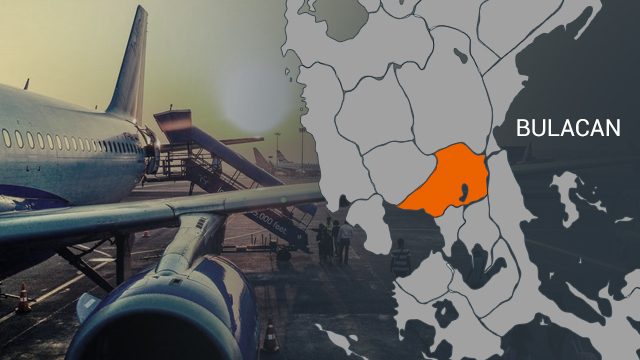
Despite opposition from environmentalists and advocates, the House of Representatives approved the bill granting San Miguel Aerocity Inc a 50-year franchise to construct, operate, and maintain a domestic and international airport in Bulacan.
Voting 218-6-2, lawmakers passed on 3rd and final reading House Bill No. 7507 on Monday, September 7.
Only the 6 legislators from the progressive Makabayan bloc voted no to the measure. They are:
- Carlos Zarate, Ferdinand Gaite, and Eufemia Callamat, Bayan Muna
- Arlene Brosas, Gabriela Women’s Party
- France Castro, ACT Teachers
- Sarah Elago, Kabataan
If passed into law, the measure would allow San Miguel Aerocity, a subsidiary of San Miguel Corporation, to build and operate the P735.6-billion New Manila International Airport in the town of Bulakan in Bulacan province.
Spanning 2,500 hectares, the airport is envisioned as an alternative gateway to the congested Ninoy Aquino International Airport. It will have 4 runways, 8 taxiways, and 3 passenger terminals eyed to serve some 100 million passengers annually.
San Miguel won the Department of Transportation’s bidding for the airport after no other firms challenged its bid in 2019.
If passed into law, the measure would require San Miguel to complete the construction of the airport within 10 years.
The franchise, however, would be revoked if the corporation fails to meet the following conditions:
- Commence construction within one year from the effectivity of the law
- Commence operations within one year from the approval of the operating permit from the Civil Aviation Authority of the Philippines
- Commence operations within 12 years from the effectivity of the law
- Operate continuously for two years
Critics, however, strongly opposed the construction of the New Manila International Airport, one of at least 22 approved and proposed reclamation projects in Manila Bay. (READ: Environmental advocates question push for Bulacan airport during pandemic)
Gabriela’s Representative Brosas said the reclamation project would displace hundreds of residents and threaten food security amid the coronavirus pandemic.
“Tinatayang nasa 700 pamilya sa Barangay Taliptip, Bulakan, Bulacan, ang apektado – mga pamilya at mangingisda na sa matagal na panahon ay pangingisda na ang kabuhayang kinagisnan, ay mawawalan ng tirahan at hanapbuhay sa gitna ng kinakaharap nating pandemya,” Brosas said as she explained her no vote to the bill.
(An estimated 700 families in Barangay Taliptip in Bulakan, Bulacan, would be affected – families and fisherfolk would lose their homes and livelihood in the middle of the pandemic.)
“This reclamation also threatens our country’s food security. At least 41 metric tons of fishery and marine products worth P30 million which come from Taliptip River Stream will be affected. Malaking dagok ito sa ating bansa dahil ngayong panahon, mas kinakailangan natin ng seguridad sa pagkain (This is a big burden on our country at a time when we need food security),” she added.
The Manila Bay and its surrounding areas are highly susceptible to liquefaction, a phenomenon where loosely packed and water-logged sediments near the surface lose their strength due to ground shaking and appear to flow like fluids.
Narod Eco, a researcher at the Marine Science Institute of the University of the Philippines Diliman, also warned the airport is prone to various geohazards in the area, including rapid land subsidence, flooding, and enhanced ground shaking.
Bulacan Ecumenical Forum spokesperson Fr Francis Cortez also said concerned residents still do not know where they will be relocated should the airport’s construction push through.
The Save Taliptip movement earlier reported that San Miguel allegedly offered residents P250,000 in exchange for the self-demolition of their houses. – Rappler.com
Add a comment
How does this make you feel?


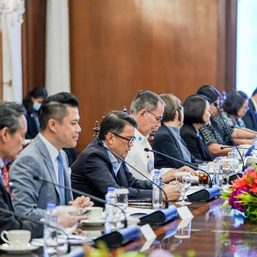
![[OPINION] The First Mode conundrum](https://www.rappler.com/tachyon/2024/03/tl-first-mode-conundrum-03232024.jpg?resize=257%2C257&crop=283px%2C0px%2C720px%2C720px)



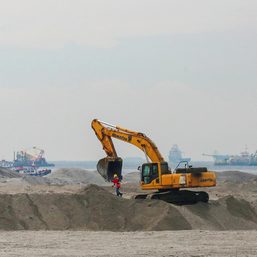
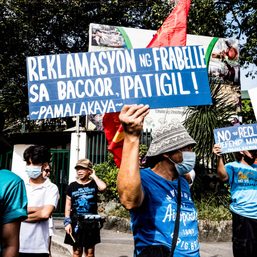
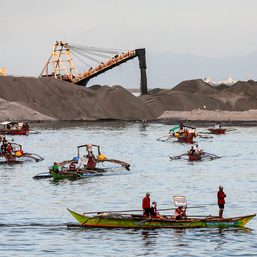
There are no comments yet. Add your comment to start the conversation.